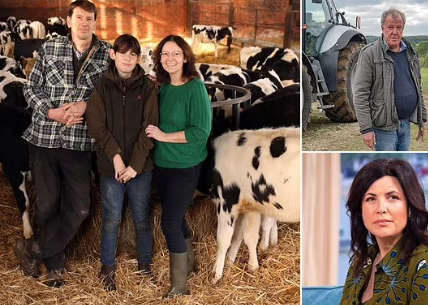
Thomas Cashman shot and killed Olivia Pratt-Korbel in her home
Olivia Pratt-Korbel was just nine years old when she was killed by a gunman who forced his way into her family’s home on August 22, 2022. Shortly before 10pm, Olivia was in her bed at the home on Kingsheath Avenue, Dovecot, that she shared with mum Cheryl Korbel, sister Chloe and brother Ryan.
Outside, drug dealer Thomas Cashman was lying in wait with two guns to ambush fellow criminal Joseph Nee, over an underworld spat that had absolutely nothing to do with the Korbel family. During a harrowing four-week trial, jurors were told Nee tried to escape by forcing his way into the Korbel home.
Cashman, undeterred by the obvious risk of hitting innocent bystanders, shot blindly through the front door, with a 38 calibre revolver, wounding Cheryl and hitting nine-year-old Olivia in the chest. The schoolgirl had been frightened by the loud bangs and gone to find her mum downstairs, who was wrestling with the door trying to keep Nee out.

A four-part Channel 4 documentary explores Olivia’s murder, as well as the killing of 28-year-old council worker Ashley Dale. Ashley was fatally shot as part of a criminal feud that had nothing to do with her on August 21, 2022.
Featuring exclusive insight and footage from Merseyside Police’s investigations, Merseyside Detectives: The Murders of Ashley and Olivia will feature testimonies from the loved ones of both victims, as well as cameras following the work of Merseyside Police.
Cashman was found guilty of Olivia’s murder on March 30, 2023. Jurors made the unanimous decision after nine hours and three minutes of deliberations. Cashman was also found guilty of attempting to murder Joseph Nee, wounding with intent to inflict grievous bodily harm against Cheryl Korbel and two counts of possession of a firearm with intent to endanger life.

Olivia Pratt-Korbel was fatally shot at her home in Dovecot(Image: Family handout/PA Wire )
Days later, on April 3, 2023, Cashman was due to return to court for sentencing but refused to appear in the dock to learn his fate. Justice Amanda Yip described his actions as “disrespectful to the family of the deceased”. He was sentenced to life in prison, with a minimum term of 42 years.
Cashman later tried to appeal his sentence, with a hearing at the Court of Appeal in London on November 15, 2023. John Cooper, KC, representing Cashman, renewed an application to appeal his client’s sentence after an initial written application was rejected by a single appeal court judge.

In oral arguments at the Royal Courts of Justice in London, watched over video-link by Olivia’s family, Mr Cooper argued that trial judge, Mrs Justice Yip, had imposed too high a minimum term. He said: “The aggravating factors were too heavily relied upon to increase the minimum term. In particular, the emphasis on planning and surveillance was a relevant factor to take into account, of course, it was, but too much emphasis was placed onto it for its sophistication.”
Mr Cooper also suggested the judge’s assertion that Cashman “lacked remorse” was wrongly used to increase the years he will spend behind bars. He said: “There was overemphasis perhaps on the lack of remorse as far as the offence was concerned. What we mean by that is the court will know the appalling facts behind this tragedy was the chase by the defendant of Joseph Nee.
“The tragic death of Olivia Pratt-Korbel was not intended and there was nothing we submit in the behaviour of this applicant to suggest that he had lack of remorse in relation to her death.” He added: “He did not know this child was standing at the bottom of the stairs when he did the appalling act of firing that gun through the front door.”

Mr Cooper referred the bench to recent High Court decisions, suggesting the age of a defendant when they are eventually eligible for release should also be taken into consideration as mitigation. He reminded the court that Cashman “will be in his seventies” when he can apply to be released on licence.
However, presiding judge Dame Victoria Sharp, President of the King’s Bench Division, rejected the renewed application along with her colleagues Mrs Justice McGowan and Mr Justice Chamberlain. She said Justice Yip was entitled to take into account the aggravating factors, including the wounds to Nee, and Cheryl Korbel and the firearms offences.
Dame Sharp told the court: “This is what the judge did, she had heard the evidence during the trial, and her sentencing remarks were immaculately structured and eloquently encapsulated the aggravating and other factors present.” She said the evidence suggested Cashman’s surveillance of the scene and efforts to source two guns went “well beyond premeditation”.
She added: “The sentence imposed by the judge was a long one, it means the applicant will be well into his seventies before being considered for his release. The length of the sentence reflects the terribleness of his crimes rather than any error on the part of the judge. There were no mitigating factors, there was no remorse. Permission to appeal is refused.”
Reading back some of Justice Yip’s comments, Dame Sharp said: “The real gravity of this case is that a young child was shot and killed in her own home. As the judge put it shooting into a family home with no regard for who may be caught in the crossfire is obviously a very significant aggravating factor which must be reflected in the minimum term.”


